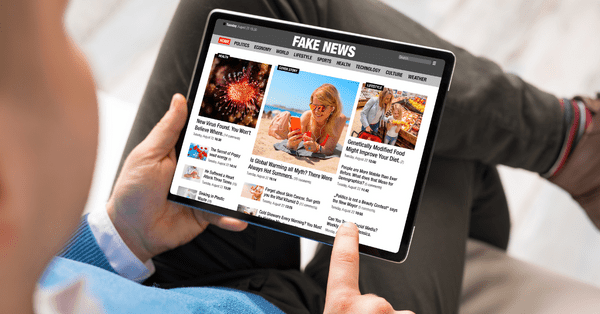Jessica, President and CEO of SW Marketing and Consulting. Graduated from the University of Phoenix with a Bachelor of Science in Business Marketing and a master of Business Administration. Fluent in English, Spanish, French and Portuguese, has paved ways through her career in the Marketing field.
Latest posts by Jessica Jordan (see all)
- Facebook Ads Manager VS Boosted Posts – Difference and Use Cases - March 6, 2024
- What is Subliminal Advertising? - February 22, 2024
- What Type of Google Ads Campaign Fits Your Brand? - February 12, 2024
Media buying has become an integral part of marketing for businesses of all sizes. Choosing the right media buying platform is essential to ensure your advertising dollars are spent wisely and your ads reach the right audience. But with so many platforms available, how do you know which one is right for your campaign? In this post, we’ll walk you through the steps to choose the right media buying platform.
 Media buying is the process of purchasing advertising space or time on various media platforms, such as TV, radio, print, outdoor billboards, and digital channels like social media, search engines, and mobile apps. The goal of media buying is to reach a target audience with the right message, at the right time, and in the right place, while maximizing the effectiveness of advertising spend.
Media buying is the process of purchasing advertising space or time on various media platforms, such as TV, radio, print, outdoor billboards, and digital channels like social media, search engines, and mobile apps. The goal of media buying is to reach a target audience with the right message, at the right time, and in the right place, while maximizing the effectiveness of advertising spend.
 The first step to choosing the right media buying platform is to understand your business needs. This includes assessing your advertising goals, identifying your target audience, and determining your budget and resources.
For example, Are you looking to increase brand awareness, drive website traffic, or generate leads? Who is your target market and their location? How much money and time do you have to invest in media buying? Answering these questions will help you narrow down your options and choose a platform that aligns with your business needs.
The first step to choosing the right media buying platform is to understand your business needs. This includes assessing your advertising goals, identifying your target audience, and determining your budget and resources.
For example, Are you looking to increase brand awareness, drive website traffic, or generate leads? Who is your target market and their location? How much money and time do you have to invest in media buying? Answering these questions will help you narrow down your options and choose a platform that aligns with your business needs.
 There are different types of media buying platforms available, each with its own benefits and drawbacks.
Programmatic advertising platforms
Programmatic platforms use automated algorithms to buy and sell advertising inventory in real-time. These platforms allow advertisers to target specific audiences, optimize their campaigns, and monitor performance metrics in real-time.
Social media advertising platforms
Social media platforms like Facebook, Instagram, Twitter, LinkedIn, and Snapchat offer their own advertising platforms that allow advertisers to reach their target audience through various ad formats, such as sponsored posts, video ads, and display ads.
Search engine advertising platforms
Search engines like Google, Bing, and Yahoo offer advertising platforms that allow advertisers to bid on specific keywords and display their ads to users who are searching for those keywords.
Digital out-of-home (DOOH) advertising platforms
DOOH platforms enable advertisers to place ads on digital billboards, screens, and displays in high-traffic locations like airports, malls, and transportation hubs.
Direct publisher relationships
Advertisers can also negotiate advertising deals directly with publishers and media outlets to secure advertising space or time on their channels. This approach can be more costly and time-consuming than using automated platforms, but it offers more control and customization options for the advertiser.
There are different types of media buying platforms available, each with its own benefits and drawbacks.
Programmatic advertising platforms
Programmatic platforms use automated algorithms to buy and sell advertising inventory in real-time. These platforms allow advertisers to target specific audiences, optimize their campaigns, and monitor performance metrics in real-time.
Social media advertising platforms
Social media platforms like Facebook, Instagram, Twitter, LinkedIn, and Snapchat offer their own advertising platforms that allow advertisers to reach their target audience through various ad formats, such as sponsored posts, video ads, and display ads.
Search engine advertising platforms
Search engines like Google, Bing, and Yahoo offer advertising platforms that allow advertisers to bid on specific keywords and display their ads to users who are searching for those keywords.
Digital out-of-home (DOOH) advertising platforms
DOOH platforms enable advertisers to place ads on digital billboards, screens, and displays in high-traffic locations like airports, malls, and transportation hubs.
Direct publisher relationships
Advertisers can also negotiate advertising deals directly with publishers and media outlets to secure advertising space or time on their channels. This approach can be more costly and time-consuming than using automated platforms, but it offers more control and customization options for the advertiser.
 Once you’ve identified the type of media buying platform that suits your business needs, it’s important to look at the key features offered.
Audience targeting
Most media buying platforms allow advertisers to target specific audiences based on demographic, geographic, behavioral, or contextual factors. This allows advertisers to reach the right people with the right message, which can increase the effectiveness of their campaigns.
Real-time bidding
Many media buying platforms use real-time bidding (RTB) to buy and sell advertising inventory in real-time. This means that advertisers can bid on available ad space or time, and the platform will automatically match the highest bidder with the available inventory.
Analytics and reporting
Almost all media buying platforms provide advertisers with detailed analytics and reporting tools to track campaign performance, measure key performance indicators (KPIs), and optimize their campaigns over time. What matters here is how the data is presented to you. Choose the one you can understand properly as this information helps advertisers to make data-driven decisions and improve the effectiveness of their campaigns.
Multi-channel capability
Many media buying platforms support multiple media channels, such as social media, search engines, display networks, and video networks. This allows advertisers to reach their target audience across multiple touchpoints and channels, which can increase the overall effectiveness of their campaigns.
Customization and flexibility
Some media buying platforms offer various customization options, such as ad formats, creative elements, and budget allocation. This allows advertisers to tailor their campaigns to their specific goals and target audience, and to adjust their campaigns based on real-time performance data.
Fraud detection and prevention
Advanced media buying platforms use advanced fraud detection and prevention tools to ensure that advertisers’ ads are not displayed on fraudulent or low-quality websites. This protects advertisers from wasting their ad spend on non-legitimate traffic and ensures that their ads are seen by real human users.
Once you’ve identified the type of media buying platform that suits your business needs, it’s important to look at the key features offered.
Audience targeting
Most media buying platforms allow advertisers to target specific audiences based on demographic, geographic, behavioral, or contextual factors. This allows advertisers to reach the right people with the right message, which can increase the effectiveness of their campaigns.
Real-time bidding
Many media buying platforms use real-time bidding (RTB) to buy and sell advertising inventory in real-time. This means that advertisers can bid on available ad space or time, and the platform will automatically match the highest bidder with the available inventory.
Analytics and reporting
Almost all media buying platforms provide advertisers with detailed analytics and reporting tools to track campaign performance, measure key performance indicators (KPIs), and optimize their campaigns over time. What matters here is how the data is presented to you. Choose the one you can understand properly as this information helps advertisers to make data-driven decisions and improve the effectiveness of their campaigns.
Multi-channel capability
Many media buying platforms support multiple media channels, such as social media, search engines, display networks, and video networks. This allows advertisers to reach their target audience across multiple touchpoints and channels, which can increase the overall effectiveness of their campaigns.
Customization and flexibility
Some media buying platforms offer various customization options, such as ad formats, creative elements, and budget allocation. This allows advertisers to tailor their campaigns to their specific goals and target audience, and to adjust their campaigns based on real-time performance data.
Fraud detection and prevention
Advanced media buying platforms use advanced fraud detection and prevention tools to ensure that advertisers’ ads are not displayed on fraudulent or low-quality websites. This protects advertisers from wasting their ad spend on non-legitimate traffic and ensures that their ads are seen by real human users.
What is Media Buying?
 Media buying is the process of purchasing advertising space or time on various media platforms, such as TV, radio, print, outdoor billboards, and digital channels like social media, search engines, and mobile apps. The goal of media buying is to reach a target audience with the right message, at the right time, and in the right place, while maximizing the effectiveness of advertising spend.
Media buying is the process of purchasing advertising space or time on various media platforms, such as TV, radio, print, outdoor billboards, and digital channels like social media, search engines, and mobile apps. The goal of media buying is to reach a target audience with the right message, at the right time, and in the right place, while maximizing the effectiveness of advertising spend.
Understanding Your Business Needs
 The first step to choosing the right media buying platform is to understand your business needs. This includes assessing your advertising goals, identifying your target audience, and determining your budget and resources.
For example, Are you looking to increase brand awareness, drive website traffic, or generate leads? Who is your target market and their location? How much money and time do you have to invest in media buying? Answering these questions will help you narrow down your options and choose a platform that aligns with your business needs.
The first step to choosing the right media buying platform is to understand your business needs. This includes assessing your advertising goals, identifying your target audience, and determining your budget and resources.
For example, Are you looking to increase brand awareness, drive website traffic, or generate leads? Who is your target market and their location? How much money and time do you have to invest in media buying? Answering these questions will help you narrow down your options and choose a platform that aligns with your business needs.
Types of Media Buying Platforms
 There are different types of media buying platforms available, each with its own benefits and drawbacks.
Programmatic advertising platforms
Programmatic platforms use automated algorithms to buy and sell advertising inventory in real-time. These platforms allow advertisers to target specific audiences, optimize their campaigns, and monitor performance metrics in real-time.
Social media advertising platforms
Social media platforms like Facebook, Instagram, Twitter, LinkedIn, and Snapchat offer their own advertising platforms that allow advertisers to reach their target audience through various ad formats, such as sponsored posts, video ads, and display ads.
Search engine advertising platforms
Search engines like Google, Bing, and Yahoo offer advertising platforms that allow advertisers to bid on specific keywords and display their ads to users who are searching for those keywords.
Digital out-of-home (DOOH) advertising platforms
DOOH platforms enable advertisers to place ads on digital billboards, screens, and displays in high-traffic locations like airports, malls, and transportation hubs.
Direct publisher relationships
Advertisers can also negotiate advertising deals directly with publishers and media outlets to secure advertising space or time on their channels. This approach can be more costly and time-consuming than using automated platforms, but it offers more control and customization options for the advertiser.
There are different types of media buying platforms available, each with its own benefits and drawbacks.
Programmatic advertising platforms
Programmatic platforms use automated algorithms to buy and sell advertising inventory in real-time. These platforms allow advertisers to target specific audiences, optimize their campaigns, and monitor performance metrics in real-time.
Social media advertising platforms
Social media platforms like Facebook, Instagram, Twitter, LinkedIn, and Snapchat offer their own advertising platforms that allow advertisers to reach their target audience through various ad formats, such as sponsored posts, video ads, and display ads.
Search engine advertising platforms
Search engines like Google, Bing, and Yahoo offer advertising platforms that allow advertisers to bid on specific keywords and display their ads to users who are searching for those keywords.
Digital out-of-home (DOOH) advertising platforms
DOOH platforms enable advertisers to place ads on digital billboards, screens, and displays in high-traffic locations like airports, malls, and transportation hubs.
Direct publisher relationships
Advertisers can also negotiate advertising deals directly with publishers and media outlets to secure advertising space or time on their channels. This approach can be more costly and time-consuming than using automated platforms, but it offers more control and customization options for the advertiser.
Platform Features to Look For
 Once you’ve identified the type of media buying platform that suits your business needs, it’s important to look at the key features offered.
Audience targeting
Most media buying platforms allow advertisers to target specific audiences based on demographic, geographic, behavioral, or contextual factors. This allows advertisers to reach the right people with the right message, which can increase the effectiveness of their campaigns.
Real-time bidding
Many media buying platforms use real-time bidding (RTB) to buy and sell advertising inventory in real-time. This means that advertisers can bid on available ad space or time, and the platform will automatically match the highest bidder with the available inventory.
Analytics and reporting
Almost all media buying platforms provide advertisers with detailed analytics and reporting tools to track campaign performance, measure key performance indicators (KPIs), and optimize their campaigns over time. What matters here is how the data is presented to you. Choose the one you can understand properly as this information helps advertisers to make data-driven decisions and improve the effectiveness of their campaigns.
Multi-channel capability
Many media buying platforms support multiple media channels, such as social media, search engines, display networks, and video networks. This allows advertisers to reach their target audience across multiple touchpoints and channels, which can increase the overall effectiveness of their campaigns.
Customization and flexibility
Some media buying platforms offer various customization options, such as ad formats, creative elements, and budget allocation. This allows advertisers to tailor their campaigns to their specific goals and target audience, and to adjust their campaigns based on real-time performance data.
Fraud detection and prevention
Advanced media buying platforms use advanced fraud detection and prevention tools to ensure that advertisers’ ads are not displayed on fraudulent or low-quality websites. This protects advertisers from wasting their ad spend on non-legitimate traffic and ensures that their ads are seen by real human users.
Once you’ve identified the type of media buying platform that suits your business needs, it’s important to look at the key features offered.
Audience targeting
Most media buying platforms allow advertisers to target specific audiences based on demographic, geographic, behavioral, or contextual factors. This allows advertisers to reach the right people with the right message, which can increase the effectiveness of their campaigns.
Real-time bidding
Many media buying platforms use real-time bidding (RTB) to buy and sell advertising inventory in real-time. This means that advertisers can bid on available ad space or time, and the platform will automatically match the highest bidder with the available inventory.
Analytics and reporting
Almost all media buying platforms provide advertisers with detailed analytics and reporting tools to track campaign performance, measure key performance indicators (KPIs), and optimize their campaigns over time. What matters here is how the data is presented to you. Choose the one you can understand properly as this information helps advertisers to make data-driven decisions and improve the effectiveness of their campaigns.
Multi-channel capability
Many media buying platforms support multiple media channels, such as social media, search engines, display networks, and video networks. This allows advertisers to reach their target audience across multiple touchpoints and channels, which can increase the overall effectiveness of their campaigns.
Customization and flexibility
Some media buying platforms offer various customization options, such as ad formats, creative elements, and budget allocation. This allows advertisers to tailor their campaigns to their specific goals and target audience, and to adjust their campaigns based on real-time performance data.
Fraud detection and prevention
Advanced media buying platforms use advanced fraud detection and prevention tools to ensure that advertisers’ ads are not displayed on fraudulent or low-quality websites. This protects advertisers from wasting their ad spend on non-legitimate traffic and ensures that their ads are seen by real human users.
